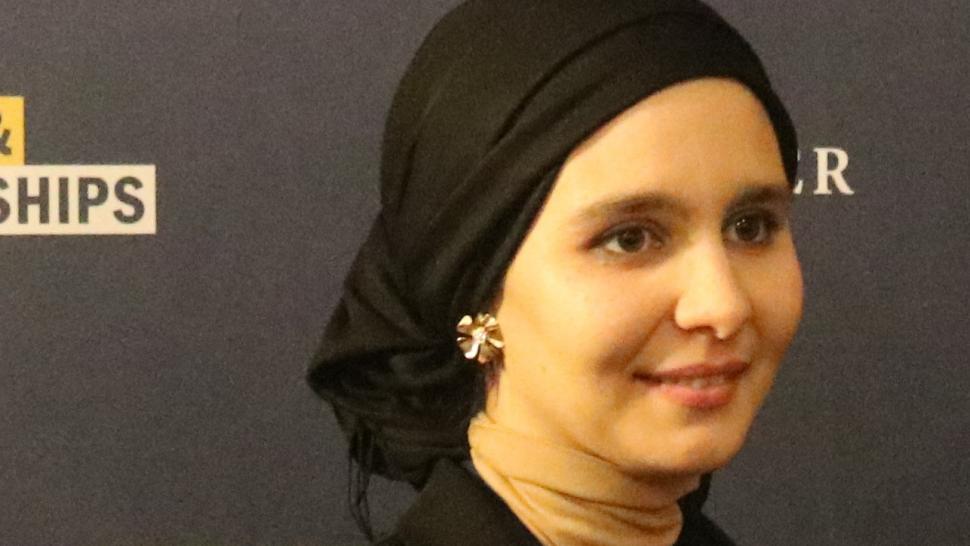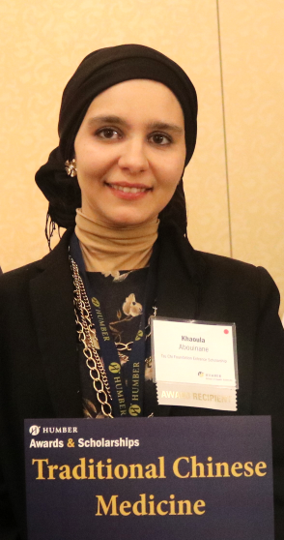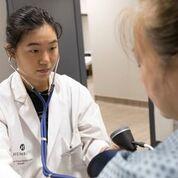
**At the time of publication, the content of this story was accurate and reflective of government health and safety measures.**
Humber’s Traditional Chinese Medicine Practitioner program stands out as the only publicly funded program of its kind in a post-secondary institution in Canada - and for its graduates’ success.
One cohort has graduated from the advanced diploma course and 100 per cent of the graduates passed the regulatory exam from the College of Traditional Chinese Medicine Practitioners and Acupuncturists of Ontario.
In 2017, Khaoula Abouinane enroled in Humber’s program. She left her job in a biomedicine lab and set out to pursue a career in Traditional Chinese Medicine (TCM). 
Before she moved to Canada, Abouinane studied medicine in Morocco for three years and was introduced to TCM by a patient in the oncology ward where she was volunteering. The patient was being treated for chemotherapy side-effects by a TCM practitioner.
“I was so impressed by how [the practitioner] was successful in treating lots of conditions in ways you don’t think of. For example, some herbs can help with an ailment instead of other kinds of medications. Some conditions were even treated more effectively than with conventional medication,” said Abouinane.
“I was also impressed that the psychological state of people going to him was much better than people coming to the ER with similar problems.”
Fully prepared for work
When she started the program at Humber, Abouinane was impressed by the polytechnic approach, where she learned about practices and methods, then had the opportunity to test her skills hands-on in a lab.
Humber has a human cadaver lab that supports experiential learning at the college. TCM students have access to the lab to study acupuncture anatomy and technique.
The students also share facilities and resources with other health programs at the college, which exposes them to a complete healthcare team.
“Humber offers interprofessional opportunities, an incredible bio-sciences lab and soft-embalmed cadavers to learn skills on. Then we have a top-notch faculty who are dedicated and all the supports to create a vibrant program,” said program coordinator, William Hossack.

“It’s the place where students take practical and theoretical TCM skills and put them to use to see how the pieces fit together and how it works with a living patient who may not respond the way we anticipate,” said Hossack.
“They’re able to get immediate and long-term feedback while helping someone through their health journey.”
The clinic is operated by the Tzu Chui Foundation, well-known for their commitment to humanitarianism and community service through educational and medical contributions and disaster relief.
The foundation’s partnership with Humber allows the program and its students to access the community and provide high-quality TCM services.
The challenge of COVID-19
When Humber’s campuses closed in March, so did the The Tzu Chi Clinic of Traditional Chinese Medicine
Classes moved online until public health regulations changed to allow more access to labs.
The summer months are usually the heaviest clinical period for the program, when all three cohorts are out in the community or in the clinic.
 “That was pretty devastating,” said Hossack.
“That was pretty devastating,” said Hossack.
Over the last few months, though, the clinic has persevered and remained open for the majority of the winter. Students will soon return to their placements after the latest lockdown.
“We used to have students treat clients in pairs, but now there is just one senior student with the patient and a supervisor who makes sure assessments, diagnoses and treatments are executed properly,” said Hossack.
The students wear procedural masks and face shields during the appointment, but Hossack says the rest of the appointment will feel much the same as before.
During these sessions, students have several tasks including gathering a medical history and determining a TCM diagnosis and treatment plan.
‘I love the support I have at Humber’
Some TCM students will be learning on campus, while others will be completing the majority of their courses online, depending which cohort they’re in.
Khaoula Abouinane would like to be on campus full-time, but she has learned to be resilient to change. She has also leaned on the Humber community.
“During my studies, I was pregnant and was often sick. Afterwards, I had to breastfeed, and I always had some kind of accommodation to help me do whatever I needed to,” she said.
“I love the support I have at Humber. I never felt that my personal challenges were a barrier for me to succeed.”
Abouinane is looking forward to returning to the TCM clinic to serve the Humber community and beyond. After several years of study and anticipation, she’s confident in her skills and abilities.
“I have lots of theory and practice. I really want to help my patients with my knowledge,” she said.
Abouinane and other TCM students will be seeing patients Monday to Friday from 9 a.m. to 7 p.m. starting Monday, January 25.